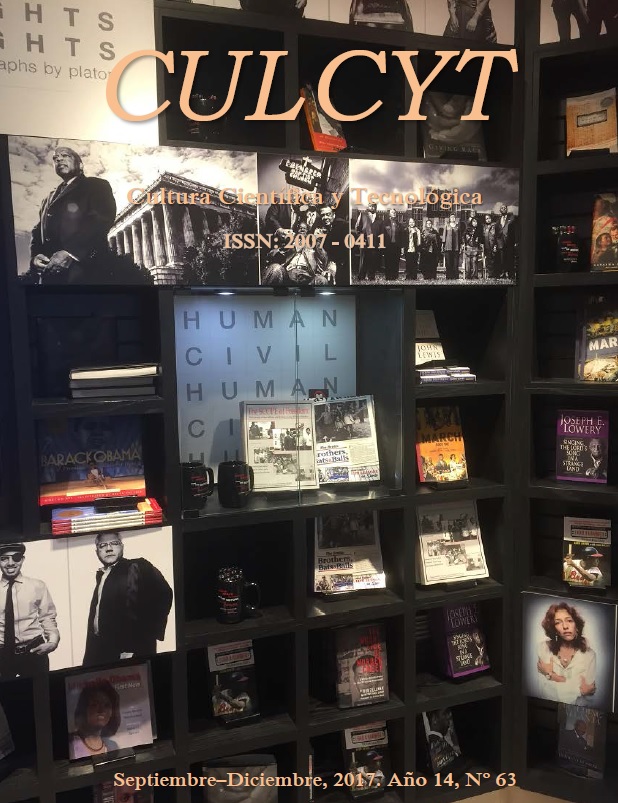EVALUACIÓN DE UN PROCESO PRODUCTIVO PARA LA ADOPCIÓN DE LA LOGÍSTICA INVERSA
Keywords:
Logística Inversa, Prueba de Tracción, Reciclaje polipropileno, Análisis de consumo energéticoAbstract
El artículo que a continuación se presenta plantea un análisis y evaluación de un proceso productivo de una empresa del giro del moldeo de plásticos, la cual tiene la necesidad de incorporar el proceso de logística inversa, por medio del reciclaje de plástico para la elaboración de un nuevo producto. Se realiza una evaluación del proceso de manejo de materiales reciclados considerando ensayo de tracción para establecer la capacidad de carga máxima y elongación del material reciclado y el material virgen, para determinar si cumplen con los requisitos de los productos a fabricar. En esta evaluación también se consideran las mediciones y análisis de consumo energético a los procesos.Downloads
References
ANIPAC. (2015). Anuario Estadístico ANIPAC 2015. Mexico. Retrieved from https://docs.google.com/viewer?a=v&pid=sites&srcid=ZGVmYXVsdGRvbWFpbnxncnVwb3RleG5lfGd4OjUzMmVkYjFmODQxYTA1MWY
ASM International. (2004). Introduction to Tensile Testing. Tensile testing (pp. 1–13). doi:10.1017/CBO9781107415324.004
ASTM. (2013). ASTM: D638, Standard test method for tensile properties of plastics. ASTM Standards, 1–16. doi:10.1520/D0638-10.1
Ayres, R. U., & Ayres, L. (Eds.). (2002). A handbook of industrial ecology. Edward Elgar Publishing.
Briassoulis, D., Hiskakis, M., & Babou, E. (2013). Technical specifications for mechanical recycling of agricultural plastic waste. Waste Management (New York, N.Y.), 33, 1516–30. doi:10.1016/j.wasman.2013.03.004
Degarmo, E. P., Kohser, R. a, & Klamecki, B. E. (2003). Materials and Process in Manufactoring. Materials and Process in Manufactoring, 383.
Erkman, S. (1997). Industrial ecology: An historical view. Journal of Cleaner Production, 5(1), 1–10. doi:10.1016/S0959-6526(97)00003-6
Kilic, H. S., Cebeci, U., & Ayhan, M. B. (2015). Reverse logistics system design for the waste of electrical and electronic equipment (WEEE) in Turkey. Resources, Conservation and Recycling, 95, 120–132. doi:10.1016/j.resconrec.2014.12.010
Kinobe, J. R., Gebresenbet, G., Niwagaba, C. B., & Vinnerås, B. (2015). Reverse logistics system and recycling potential at a landfill: A case study from Kampala City. Waste Management. doi:10.1016/j.wasman.2015.04.012
Lowe, E., & Evans, L. K. (1995). Industrial ecology and industrial ecosystems. Journal of Cleaner Production, 3(1), 47–53. doi:10.1016/0959-6526(95)00045-G
Manahan, S. (2001). Fundamentals of environmental chemistry. Polish Journal of Chemistry, 993. Retrieved from http://books.pakchem.net/uploads/1/2/7/7/12772060/fundamentals_of_environmental_chemistry.pdf
Mohd, S. (1981). Statistical Package for Social Sciences. Nursing Research, 30, 93. doi:10.1097/00006199-198103000-00009
Westkamper, E., Alting, L., & Arndt, G. (2000). Life Cycle Management and Assessment: Approaches and visions towards sustainable manufacturing. CIRP Annals - Manufacturing Technology, 49, 501–522. Retrieved from http://www.scopus.com/inward/record.url?eid=2-s2.0-0034512395&partnerID=40&md5=f1dfcacb6cdd0a1de58593fa64c6402f
Published
How to Cite
Issue
Section
License
Todos los contenidos de CULCYT se distribuyen bajo una licencia de uso y distribución “Creative Commons Reconocimiento-No Comercial 4.0 Internacional” (CC-BY-NC). Puede consultar desde aquí la versión informativa de la licencia.
Los autores/as que soliciten publicar en esta revista, aceptan los términos siguientes: a) los/las autores/as conservarán sus derechos de autor y garantizarán a la revista el derecho de primera publicación de su obra; y b) se permite y recomienda a los/las autores/as agregar enlaces de sus artículos en CULCYT en la página web de su institución o en la personal, debido a que ello puede generar intercambios interesantes y aumentar las citas de su obra publicada.



